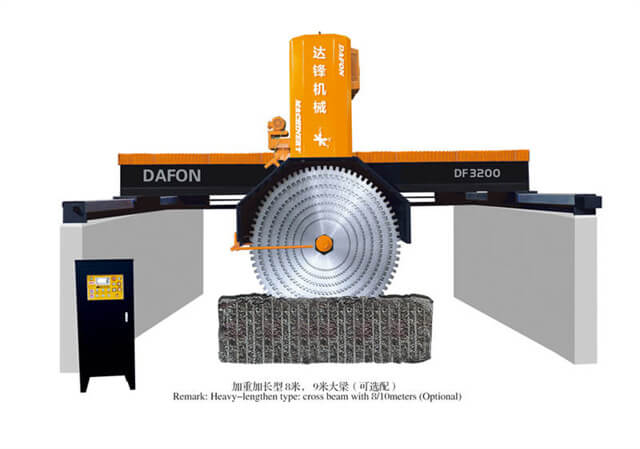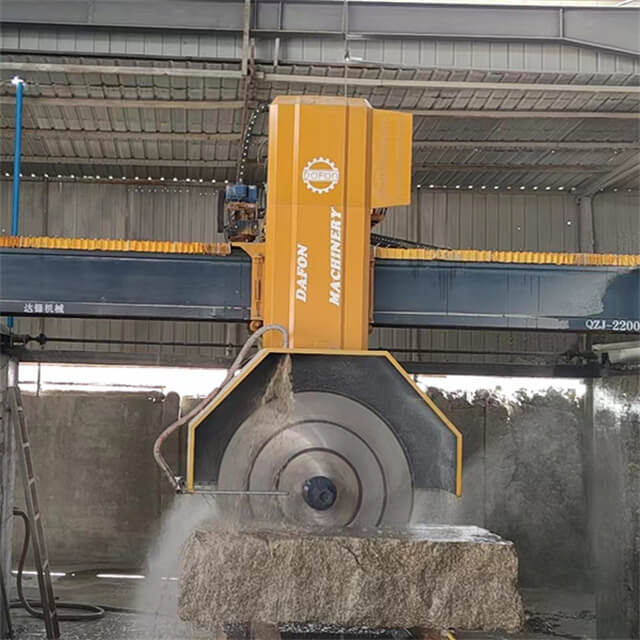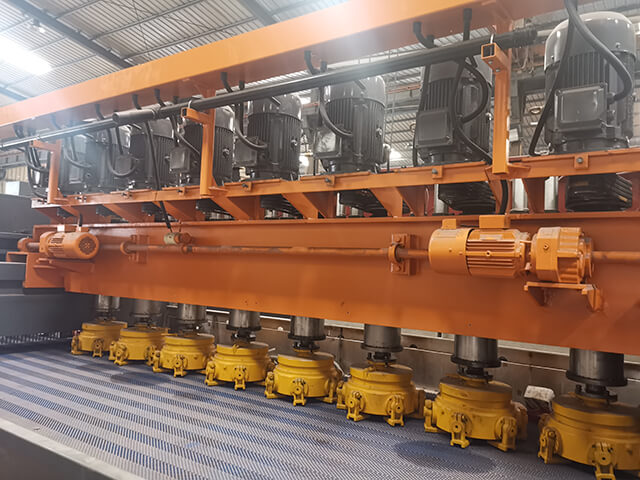Author:Dafon Kerbstone Machine FROM:Stone Machine Manufacturer TIME:2023-11-29

Granite, as a widely used building material, requires efficient production processes to meet the increasing market demands. The production of granite machinery plays a crucial role in ensuring the quality and quantity of granite products. In this article, we will delve into the efficient granite machine production process, highlighting the key steps and technologies involved.

The first step in the efficient production of granite machinery is the careful selection of raw materials. High-quality granite ensures the durability and aesthetic appeal of the final product. It is important to source granite from reputable quarries and conduct thorough quality inspections to eliminate any defects or impurities.

Once the raw granite blocks are selected, cutting and shaping processes come into play. Advanced cutting machinery equipped with diamond blades allows for precise cutting of granite into slabs or tiles. Additionally, shaping equipment utilizes innovative technologies to give the granite its desired form, whether it's a countertop, flooring tile, or decorative structure.
Surface finishing is a critical stage in granite production that enhances its aesthetic appeal and functionality. Technologies such as polishing machines, honing machines, and flaming equipment are employed to achieve different surface finishes, catering to diverse customer preferences and application requirements.
Edge profiling adds the final touch to granite products, contributing to their visual appeal and safety. CNC machines with specialized tooling are utilized to create various edge profiles, including beveled, bullnose, ogee, and more, providing customers with a wide array of design options.
Ensuring the quality of granite machinery production is paramount. Implementing rigorous quality control measures throughout the production process, such as dimensional inspections, color consistency checks, and strength testing, guarantees that the finished products meet industry standards and customer expectations.
Efficient packaging and logistics play a vital role in delivering granite products to the market in pristine condition and within the specified timelines. Utilizing automated packaging systems and optimizing logistics routes helps reduce lead times and minimize the risk of damage during transportation.
Integrating automation technologies into the granite machinery production process streamlines operations and increases overall efficiency. Robotic systems for material handling, CNC automation for machining, and smart monitoring systems contribute to enhancing productivity and reducing production costs.
In today's environmentally conscious world, sustainable practices are integral to the granite machinery production process. Implementing water recycling systems, using eco-friendly cutting and polishing methods, and optimizing energy consumption not only reduce the environmental impact but also enhance the corporate image of granite manufacturers.
In conclusion, an efficient granite machine production process involves meticulous raw material selection, advanced cutting and shaping techniques, precise surface finishing, stringent quality control, optimized packaging and logistics, integration of automation, and adherence to sustainable practices. By embracing these principles, granite manufacturers can meet the demands of the market while upholding product quality and environmental responsibility.
```